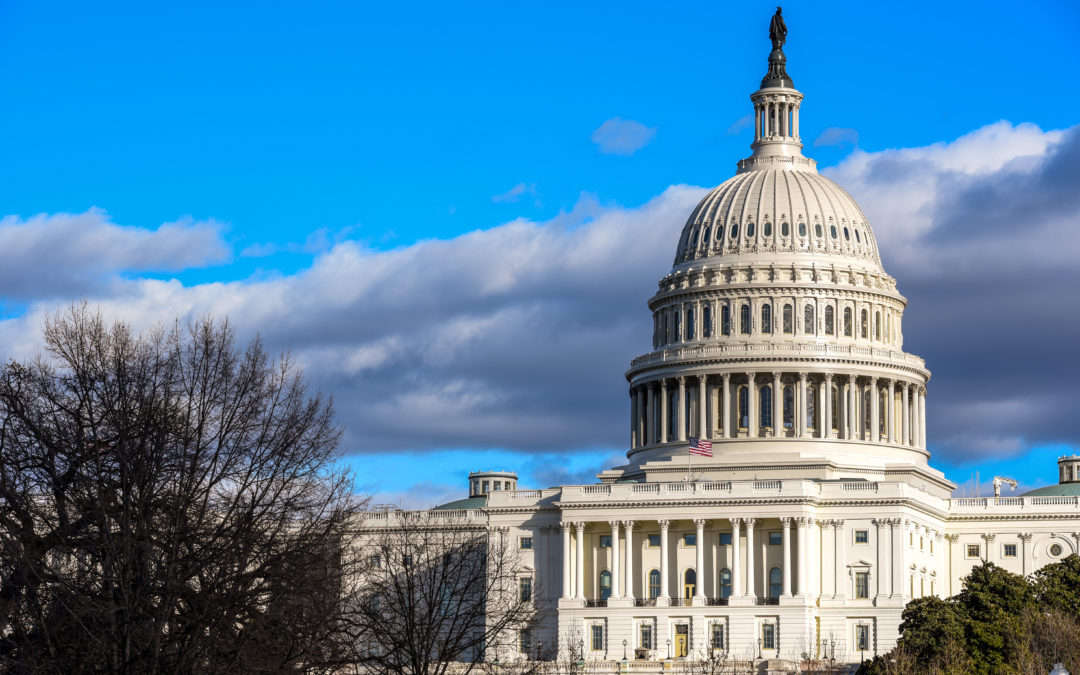
by Edward Ford Jr. | Aug 19, 2024 | Black History, Commentary, Headline News, Social Justice |
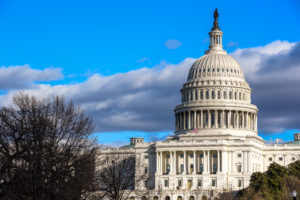
“We hold these truths to be self-evident, that all men are created equal, that they are endowed by their Creator with certain unalienable rights, that among these are life, liberty and the pursuit of happiness.”
These words are among the opening lines of the Declaration of Independence. It is a bold declaration, and one that we as a nation should in every era strive towards. However, the reality is that we have yet to attain this ideal. These words written should remind each of us that we are made in the Imago Dei – the image of God. We are entitled to inalienable rights. What is an inalienable right you might wonder? It is a right to freedom; a right to have your voice heard; a right to have clean air, water, food and housing. These rights were given to us by our Creator and therefore, no government should be able to deny them. Again, we have had to strive in many ways to live up to this standard. The horrific legacy of treatment towards indigenous people, race-based chattel-slavery, lynching, black codes, Jim Crow, Voter Suppression, Red-Lining, and Mass Incarceration are indicators to us that we are still on the journey to living up to what was written in our Declaration. Within each generation there is a remnant of people of good faith who must decide to call out the present injustice and reject evil and wrongdoing at every angle.

Sojourner Truth Memorial in Florence, Massachusetts.
Lynne Graves, CC BY-ND
During the Abolition Movement, Frederick Douglas and Sojourner Truth were among abolition leaders who were led by their deep Christian faith to push for the abolition of race-based chattel slavery. They looked to the Declaration of Independence as a document that applied the moral laws of creation to our newly formed nation and how all people ought to be treated. The use of the declaration was much a part of the argument for abolition, and rightfully so. The argument was to highlight blatant hypocrisies that were being ignored for the benefit of the planter class. The same argument was used during America’s 2nd Reconstruction, the Civil Rights Movement of the 1950s-60s. Our country is much familiar with the name of Reverend Dr. Martin Luther King Jr. and his famous “I Have a Dream” speech. How many of us truly know what was said in that speech besides “I have a dream”? The correct title of the speech that King delivered, was “Normalcy, Never Again.” Within this speech King is quoted saying, “When the architects of our republic wrote the magnificent words of the Constitution and the Declaration of Independence, they were signing a promissory note to which every American was to fall heir. This note was a promise that all men – yes, black men as well as white men – would be guaranteed the unalienable rights of life, liberty and the pursuit of happiness.” King was appealing to our nation’s better angels and trying to reveal to us the reality that we had not been true to what we wrote on paper. In his final speech, titled “I’ve been to the Mountaintop”, delivered before a Memphis crowd on April 3rd, 1968 the day before he was assassinated, King said “All we say to America is to be true to what you said on Paper”. King was referring back to our Declaration and the bold promises of liberty and justice for all we continue to tout to this very day.
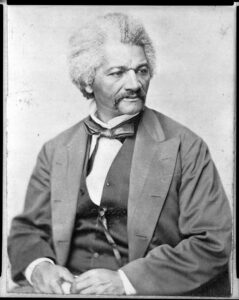
I raise the example of King, Truth, and Douglas, as they were each Christian leaders who gave themselves to the plight of justice in their respective eras. The lives of these American Christians among many others give us a glimpse into how we as Christians can engage in the movement for justice from a biblical worldview in our society today. We must ask ourselves as Christians, how can we aid in helping our nation truly live up to its highest ideals of liberty and justice for all? How can we progress our nation towards valuing everybody as image bearers in and throughout our systems?
First we have to look back at the scriptures and principles of God’s Word. Jesus shares the story of the Good Samaritan in Luke chapter 10:25-37, for good reason. He is breaking down cultural barriers and helping those of his day to see one another as fellow image bearers. Earlier in the chapter Jesus effectively answers a religious law expert’s question regarding the greatest commandments (v. 27). Jesus essentially had the man answer his own question! The passage is as follows: “He answered, ‘Love the Lord your God with all your heart and with all your soul and with all your strength and with all your mind’; and ‘Love your neighbor as yourself.’ ‘You have answered correctly,’ Jesus replied. “Do this and you will live.” But he wanted to justify himself, so he asked Jesus, “And who is my neighbor?” This is when Jesus shares the famous Good Samaritan story with him and how he was the only one of three people to stop and help the person who had just been beaten and robbed on the side of the road. The exchange between the two continues. In verses 36-37, Jesus asks him, “Which of these three do you think was a neighbor to the man who fell into the hands of robbers?” The expert in the law replied, “The one who had mercy on him.” Jesus told him, “Go and do likewise.”
This passage is timeless. It provides a view into God’s heart towards all of humanity, how Jesus came as the rendering of God’s mercy towards us, and how he requires us to show mercy to others. In Luke 4:18-19, Jesus makes his own opening declaration as he begins his three-and-a-half-year world-changing ministry. He says, “The Spirit of the Lord is on me, because he has anointed me to proclaim good news to the poor. He has sent me to proclaim freedom for the prisoners and recovery of sight for the blind, to set the oppressed free, to proclaim the year of the Lord’s favor.”
We who carry on the Great Commission, who have a duty to spread the Gospel to all, must recognize we have to fulfill this duty in word and deed. The early church in the Book of Acts spread the Gospel and they also initiated humanitarian help to those in need. There are so many issues in our modern world today, that we as the body of Christ have the capability to impact in a positive way. From helping the unhoused, resolving food insecurity in entire communities, to pushing our policy makers to make healthcare more affordable, and taking numerous policy actions that will uplift all people. We are to be a voice for the voiceless. There is no greater place of refuge and strength for the weary, the broken and the hurting than the church today. We must live the Gospel through our actions and that includes standing up for the poor, the marginalized, and the oppressed of society.
 Reverend Edward Ford Jr. is a Former Elected Official in Connecticut, a Community Advocate, Organizer, Healthcare Administrator, and Public Theologian. He is currently studying for a Master’s Degree in Divinity at Yale University in New Haven, CT.
Reverend Edward Ford Jr. is a Former Elected Official in Connecticut, a Community Advocate, Organizer, Healthcare Administrator, and Public Theologian. He is currently studying for a Master’s Degree in Divinity at Yale University in New Haven, CT.
Sources:
National Archives. The Declaration of Independence. https://www.archives.gov/founding-docs/declaration-transcript.
Carla S. King and William M. King. “Be True to What you Said on Paper.” History Colorado. Jan. 14th, 2021. https://www.historycolorado.org/story/discourse/2021/01/14/be-true-what-you-said-paper

by Allen Reynolds, UrbanFaith Editor | Nov 6, 2022 | Commentary, Headline News, Social Justice |

Every two years in the United States of America we have federal, state, and local midterm elections. And every year we hear from politicians or administrative officials about why we should vote for them (or not vote for their opponent). The people elected during midterms become the leaders who manage our communities’ money, advocate for our well being, determine how our justice system works, shape our education systems, provide for our safety, dispose of our waste, maintain our environment, and more. Local and state elections are the most impactful on our day to day lives and yet few of us even know who our representatives, administrators, or public officials are.
Our democracy is at stake. Politicians, media outlets, public figures, scholars, researchers, activists, and others have all sounded the alarm. There are thousands of people across the country working in coordinated ways to undermine our system of elections, take control of our local governments, and advocate for political violence. Many of those who are part of this movement claim to be Christians. There are politicians running and influencers on social media who have convinced millions of Americans to place greater faith in lies and liars than in Christ Himself. They devote their energy toward upholding election lies and won’t trust anyone that doesn’t agree with them. They are unmoved by evidence, only valuing the echoes of affirmation in their social circles.They have created a religion of suspicion and their faith is distrust. Believers must stand in contrast with the false followers of Jesus who are really white Christian nationalists and make sure to vote for leaders who represent justice, equality, value, and care for all people regardless of their background. We cannot support or endorse hate, fear, and violence in the name of our Lord and call it faithfulness. We have learned we cannot be slaves to single issues at the federal level and neglect policies and positions at the local and state levels. We have to vote in midterm elections like this one, or our votes may become truly meaningless in the future. It is only pride that keeps us from seeing that if fascist governments can rise in other other countries that it can happen here if we do not participate.
As a voters we fall easily and deeply into tribalism, the identification and support of leaders we feel like are part of “our group.” Unfortunately when we do not have a president to vote for, most of us don’t vote at all. According to Pew Research Center 62% of people of voting age turned out in the 2020 elections, which was a record breaking number, mostly fueled by the bitter cultural wars in the Presidential race. But consider that means that 38% of people who could vote, did not. In midterm elections the numbers are usually under 50%. Literally the minority of people elect leaders who impact all of our lives. And yet when we don’t vote or care about who to vote fore beyond the top officials, we miss out on a critical piece of our democracy.

West side of the Capitol Building at Capitol Hill in Washington DC. Daily photos in the afternoon, good for late autumn, winter and early spring illustration
We are engaged and fervent whenever we elect the president, even though most of us will never meet them and rarely understand their impact on our day to day lives. A president is a symbolic leader for many of us, representing our collective hopes, aspirations, and ultimate accountability. But a president can make none of the changes we imagine for ourselves and our communities without the cooperation and support of the legislature. The laws passed by legislative bodies are ineffective when the courts don’t enforce them. Our entire government is built on cooperation between branches and accountability through voting, both of which are under greater threat than many of us could imagine. We must vote in midterm elections, otherwise our desires to see flourishing in our communities will remain only dreams. We need to know who our tax assessor is, our city council members, our sheriffs, our judges, our attorney generals, our state representatives, our county officials, our congresspeople, and our governors.
As people of faith we have an even greater responsibility to be informed voters and to vote. The United States of America is not the Kingdom of God. Jesus is the eternal King of the Kingdom and He is not up for election. No leader can serve as proxy for Jesus over our lives or our nation. We are not voting to put Jesus Christ in office. He is already reigning over everything by His own power. But we can absolutely elect leaders who agree with our Christian principles of justice, help for the poor, safety for children, value for all lives, and care for the environment. We must look to our faith to inform what matters in our personal politics, and value other people’s faith or lack of faith enough to care for them too. Jesus taught us to seek justice for those who are different from us. Jesus taught us to hold leaders accountable. Jesus taught us to pay special attention poor people, homeless people, those from different countries, those with disabilities, those with food insecurity, and young people. Jesus taught us to love our neighbors as we love ourselves. Which means we have to vote for leaders and policies that will positively impact not just us, but members of our community.
We should vote because we need more good in our government. And we should know our leaders from city hall to capitol hill because their decisions impact us at home, work, school, church, in the park, in the street, in the store, and everywhere else in this country.
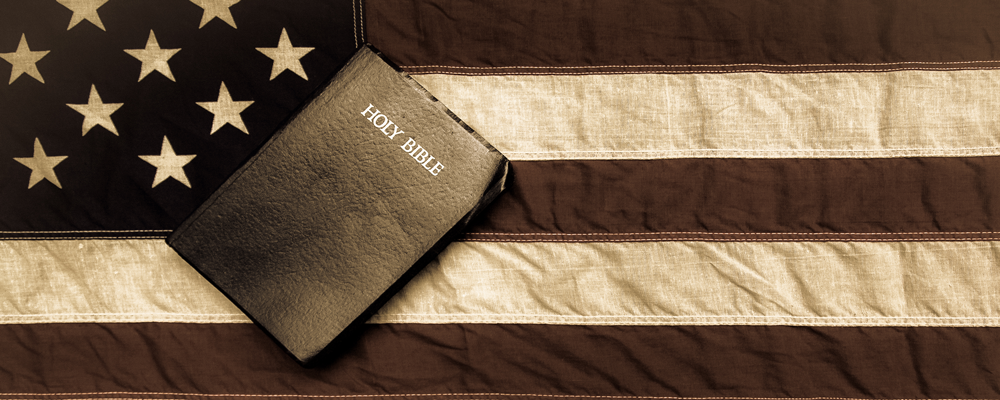
by Edward Ford Jr. | Oct 18, 2022 | Commentary, Headline News, Social Justice |

As a Christian, you may ask yourself at times how to live out your faith in the public sphere. Injustices are occurring in the world around us every day. Because your faith doesn’t allow you to ignore these happenings, you feel a strong desire from within to take productive action. Some people choose to take harmful action but your desire is to take action that heals, that works towards justice and that shows God’s love for humanity. This is what we should aim to do, and my goal is to help you begin to think of ways you can live out your faith while having a positive impact on the world around you.
We are called to live out our faith and have an impact on society. A verse in the scriptures that reiterates this calling is Micah 6:8, which says “He has told you, O man, what is good; and what does the Lord require of you but to do justice, and to love kindness, and to walk humbly with your God?” In this verse Micah points out what God requires of us. We are to do Justice. How are we “to do Justice”? What does that mean for us? Justice comes in different forms. We can do Justice by lending help to the parent who is struggling to put food on the table and is earning just enough to put a roof over their children’s heads. We can lend our help by offering to buy them groceries, maybe filling up their car with gas or connecting them to resources that can give them financial assistance and build their credit. We can do justice by assisting the homeless in our community to find shelter and get them connected to resources that will supply them with food and daily necessities. We can do justice by giving our time, talent and treasure to community organizations that give back to youth, those who are less fortunate and those who are struggling to make it each day.

These are some ways we can do justice on an individual basis. To those who already do such acts regularly, I commend you. Continue this good work. However, there’s also a need for justice on a systemic level within our society. As Christians, we are to follow the example of Christ, and stand beside those who are looked down on and mistreated by society. We have the capability to do justice on a systemic level by advocating for changes within our systems. We should advocate for opportunities for disadvantaged youth. Whether that be through mentorship programs, academic tutoring, pouring more resources into historically underfunded schools and giving families more choices as to where their child can attend. We should advocate for those who are battling unfair sentences in the justice system and creating opportunities for those who have paid their debt to society, in an effort to reduce recidivism rates. We should aim to provide more accessible opportunities for employment, educational opportunities, and programs for financial and civic literacy once they are released. More people should focus on advocating for those struggling with mental health issues and substance abuse. These are initiatives that would exhibit justice as Micah 6:8 led us to do.
Our participation in advocating for policy and systemic change in the public sphere is crucial. Many people believe their voice doesn’t matter, and as a result they don’t bother to vote or advocate for change. I can understand why many feel this way. However, inaction by good hearted people doesn’t get us further towards justice at all. Our government is supposed to be by and for the people. That means we the people of the United States have a voice and can move our government through civic engagement to reform laws and systems to deliver true justice. We can have a great impact especially on a local level. For example, after the terrible deaths of George Floyd and Breonna Taylor many cities across the country were pressed by citizens to take action against not only police brutality but racial injustice on a broad systemic level. That means in education, voting, criminal justice, and especially public health as the COVID-19 pandemic exposed the inequities in our health care system. With much to be addressed U.S. cities and state governments passed their own policies in an attempt to tackle racial injustice. In my home City of Middletown, CT where I am a member of the City Council, we decided to establish a Task Force on Anti-Racism. This Task Force was given the charge to find policy solutions to systemic racism wherever it exists under our jurisdiction. My colleagues and I received numerous emails from residents calling for change. The establishment of the Task Force was a response to residents’ call to action and would be the beginning of furthering justice within our own community. This is one example of how people can make a difference and move our government from stagnation and lip service to action and moving in the right direction. I encourage you to believe that your voice matters. Someone is waiting for you to stand up for the cause of justice.
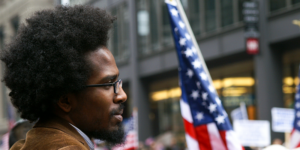
With myriad issues that need to be addressed it’s easy to feel overwhelmed. You don’t have to figure out how you will be an advocate for all of them. I encourage you to look at the example of Christ. He advocated for those who were hungry, sick, outcasts and shamed. He even advocated for you before you were born so that you may have life more abundantly. If you use your time and energy each day advocating for justice, you are advocating for those who are facing current circumstances as well as generations to come. Remember, to do justice is to take action that creates a society where everyone has the opportunities, tools and resources to fulfill their God-given potential. Justice can be restorative instead of further tearing individuals down.
I focused in the previous passages on how we “do justice.” However, those actions are to love kindness and walk humbly as well. When we reach out our hand to help and advocate for others who society would rather turn their backs on, we extend kindness. When we set aside our pride and consider the circumstances of others instead of solely focusing on our own, we begin to walk humbly. I challenge you to think about what issues in your community you can begin to advocate for that would further the cause of justice. What Town Hall meetings can you attend to advocate for justice? What issues can you write your Legislator or Mayor about? If you don’t know who these individuals are, I encourage you to research them. As you begin to walk in the requirements of Micah 6:8, you will be living out your faith in the public sphere.
by Allen Reynolds, UrbanFaith Editor | Apr 28, 2022 | Headline News, Social Justice |
No one can deny that our nation is angry, hurt and frustrated due to the senseless violence that continues to plague us; however, the way we address today’s issues is absolutely critical, particularly for us as Christians. Here are a few suggestions on how we can respond to the violence and pain through active faith.
 Pray in unity.
Pray in unity.
Now, more than ever, the church is commanded to pray in unity. In Matthew 18, Jesus emphasizes the importance of collective spirituality by saying, “If two of you agree here on earth concerning anything you ask, my Father in heaven will do it for you. For where two or three gather together as my followers, I am there among them.” Yes, times are tough and you may find it difficult, but praying together not only obeys these words of Christ, but also serves as a powerful tool of encouragement and reminds us that we are not alone in the struggle. Besides, Christianity is a communal faith, and historically, many African and African-influenced cultures have always valued collective spirituality. Most importantly, we must remember that we serve a God who answers prayer, not always in the ways we expect, but always effective according to His will!
Educate yourself and others.
Hosea 4:6 declares, “For my people perish for lack of knowledge.” In order to actively address today’s issues, it is absolutely critical that we are prepared, both spiritually and intellectually. Take the time to educate yourself on the laws, procedures and government systems that affect both you and your family. However, it is just as important to equip yourself with Scriptures that will assist you in learning strategies that respect government while actively advocating against injustice and violence. Throughout the Bible, Jesus teaches us the importance of knowing your rights as both citizens of your home country and citizens of God’s kingdom. (Matthew 22:15-22, Luke 4:38-53, Mark 3:1-6) It is imperative that you know your rights in order to prevent them from being violated.

Be persistent and hopeful in seeking justice.
In Luke 18, Jesus tells a parable that is not often shared among members of the Church. It is a parable about a persistent woman who goes to a judge to receive justice. Although he is not righteous, the judge gives the woman justice because of her persistence. As Christians, will we have enough faith to be persistent and seek God, even when dealing with a broken and unrighteous government?
The call to action here is clear. Keep seeking justice, even in a broken system, because the persistence will eventually bring about change.
Love your neighbor.
In the midst of all that is going on, this is the key. We have to choose to love our neighbors the way God loves (Matthew 22:38-39). We must love because we have been shown love, even when it is uncomfortable and inconvenient. Showing acts of love to our neighbors, particularly to those who historically have not always shown love in return, will begin to build the bridges across the ravines of fear that divide our nation and lead to the violence in the first place.
It is important to see here that love covers a multitude of sins, the sins that separate us from one another and God. Fear drives a lot of the sin of violence in this nation. It is the fear that we will keep killing one another, fear that things will not change, fear between races, and fear within communities. However, it is perfect love that casts out all fear (1 John 4:18). As Dr. Martin Luther King Jr. said, “I have decided to stick with love. Hate is too great a burden to bear.”
Share your thoughts on the recent violence and your plan of action as a Christian in today’s society below.
by Jaimie Crumley | Dec 5, 2021 | Headline News |
“Do not neglect to show hospitality to strangers, for by doing that some have entertained angels without knowing it” (Hebrews 13:2, NIV).
Have you ever known someone who never meets a stranger?
Folks who live their lives in such a way that nearly everyone they meet becomes a new friend astound me with their generosity of spirit. I admire their courage and zest for life, which compels them to embrace even those they do not know well, knowing that each creature has gifts to share with the world.
As a faith leader, when I meet folks with those sorts of spirits, I see some of the Spirit of Christ who, although divine, shared meals with the poor, sick, and sinful, laid hands on the infirm, and drew close to the crowds without reservation.
Even in His dying moment, Jesus stretched His arms wide as though embracing all of us and declared forgiveness over us because we did not realize what we were doing. Jesus is the embodiment of the grace of hospitality, and I would argue that hospitality is the biggest gift we, the body of Christ, can offer the world right now.
The Fear Factor
The current social and political climates have caused me to take a step back to examine what Scripture teaches us about welcoming strangers among us. I confess that I focus much of my time concerning myself with the sins that other people perpetrate on each other. I concentrate on the news stories about hate crimes without giving much consideration to the ways that I allow hate and fear to fuel my actions.
The truth is that fear motivates so much of what we do. Our fears prevent us from loving and practicing hospitality in the ways that our faith demands of us. In today’s social media culture, many of us have a fear of rejection. As humans, many of us also have a fear of not knowing which prevents us from meeting new people and having new experiences.
We also often have fears of being powerless that cause us to try to stay in places that make us feel powerful. We allow our fears to impede upon our ability to love.
Before turning outward and critiquing national and international leaders, I want to encourage us, especially during this introspective liturgical season called Lent, to look within to ask ourselves how we are practicing the kind of hospitality that Scripture and the example of Jesus Christ demand of us.
Love Thy Neighbor?
Many of us have learned the classic stories about hospitality in Sunday School and Sunday morning sermons.
We have heard about Abraham and Sarah, who unknowingly hosted angels who foretold the birth of Sarah’s son. In the passage from Hebrews I cited at the top of this article, the author alludes to that passage from Genesis. Despite the many admonitions throughout the Hebrew Bible to care for the foreigner, widow, and orphan, we, like the lawyer in Luke 10, often ask, “Who is my neighbor?”
In response to that question, we have heard Luke’s well-known story of the Good Samaritan who, despite his vastly different culture and faith, cared for an Israelite stranger he found injured on the side of the road. Even after hearing such a dramatic story of sacrificial love, we continue to struggle with caring for our neighbors. Perhaps my favorite aspect of the story is the way it condemns us for the times we fail to show love to people who are just like us.
We have become politically motivated to care for immigrants in recent months, as we should, but we mistreat those who sit right next to us in the pew or who share our offices at work!
Jesus tells Israelite listeners the story of an Israelite man who was robbed as he traveled from Jerusalem to Jericho. A priest passed by and walked on the opposite side of the road to avoid helping. Then, a Levite, a religious leader from the priestly tribe of Levi, passed him. Only a Samaritan, a man who was from a different culture and faith background, cared for the man.
Many commentaries have explained that the priest and the Levite probably did not interact with the victim because of concerns about ritual purity, but does that not cause us to consider our priorities? We cannot prioritize legalism over mercy and love. Here was Jesus, the Lamb of God who takes away the sins of the world, essentially urging His listeners to ritually defile themselves because mercy is at the heart of the Gospel.
The Missing Link
 What the world needs from the church is for us to be the church. The time is now for us to commit ourselves to following Jesus Christ in our actions. It was the way the early Church first began to thrive.
What the world needs from the church is for us to be the church. The time is now for us to commit ourselves to following Jesus Christ in our actions. It was the way the early Church first began to thrive.
As J. Ellsworth Kalas puts it in his book The Story Continues: The Acts of the Apostles for Today, “The Christian church was born in a time and culture when the marketplace of beliefs was crowded to its borders. Religion was everywhere … This meant that it was easy to talk religion, but also that it was difficult for the decision to get serious. No wonder, then, that the followers of Christ were known as ‘people of the Way.’”
The earliest Christians stood out, and they increased in number because they lived their Christianity; for them, it was not simply an interesting intellectual idea. They attracted converts because of their countercultural way of viewing religion as more than a list of philosophies.
Rev. Dr. Martin Luther King Jr. provided a practical understanding of this concept in his sermon “A Knock at Midnight,” which appears in his 1963 book of sermons called Strength to Love. King preached, “The church must be reminded that it is not the master or the servant of the state, but rather the conscience of the state … if the church will free itself from the shackles of a deadening status quo, and, recovering its great historic mission, will speak and act fearlessly and insistently in terms of justice and peace, it will enkindle the imagination of mankind and fire the souls of men, imbuing them with a glowing and ardent love for truth, justice, and peace.”
In other words, from the Scripture we read, to the prayers we pray, to the songs we sing, our worship is real and lived and must transform us from the inside out. The church is not a place to go; the church is a thing to do. We call the physical buildings in which we worship churches, but the church is the body of Christ, at work in the world.
So, what does living our faith teach us about hospitality?
A Place Where Ministry Happens
One of my mentors in ministry began a new pastorate at the end of 2016. After examining the needs and challenges of ministry at her new church, she chose as her theme of her church “Radical Hospitality.” The new framework of thinking about the church as a place where radical hospitality happens has changed it in practical ways in just a few short months.
Church members are beginning to imagine their worship space as first and foremost a place where ministry happens. That sounds obvious, I know, but so many churches have gotten away from thinking of themselves as being ministry spaces above all else.
One of the most drastic changes she has made as pastor has been to reimagine the parsonage, the house that is owned by the church for use by pastors and their families. That house now serves a dual purpose. It is both a “meeting house” where retreats, Bible study, and meetings can occur, and it provides accommodations for the pastor and visiting ministers.
Knowing my colleague, and understanding what it means to be “radical,” I am expecting that in the months and years to come, her new ministry will continue to grow and transform to become more welcoming for all people.
It is our task, as the Samaritan did in the Gospel of Luke, to embrace all we meet. As Hebrews 13:2 reminds us, we do not know the actual identity of those we encounter each day. Scripture teaches us that if we open our hearts to the possibility, each stranger has gifts to share with us that will enhance our lives. My fellow people of the Way, let us go forward with joy to spread Christian hospitality.
Jaimie Crumley is a minister, blogger, podcaster, and ministry consultant. She blogs about race, gender, history, and Christian faith at iamfreeagent.com.
Share your thoughts on ministry and hospitality below.




 Reverend Edward Ford Jr. is a Former Elected Official in Connecticut, a Community Advocate, Organizer, Healthcare Administrator, and Public Theologian. He is currently studying for a Master’s Degree in Divinity at Yale University in New Haven, CT.
Reverend Edward Ford Jr. is a Former Elected Official in Connecticut, a Community Advocate, Organizer, Healthcare Administrator, and Public Theologian. He is currently studying for a Master’s Degree in Divinity at Yale University in New Haven, CT.






 Pray in unity.
Pray in unity.
 What the world needs from the church is for us to be the church. The time is now for us to commit ourselves to following Jesus Christ in our actions. It was the way the early Church first began to thrive.
What the world needs from the church is for us to be the church. The time is now for us to commit ourselves to following Jesus Christ in our actions. It was the way the early Church first began to thrive.